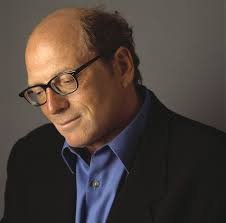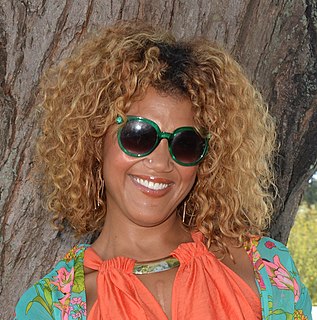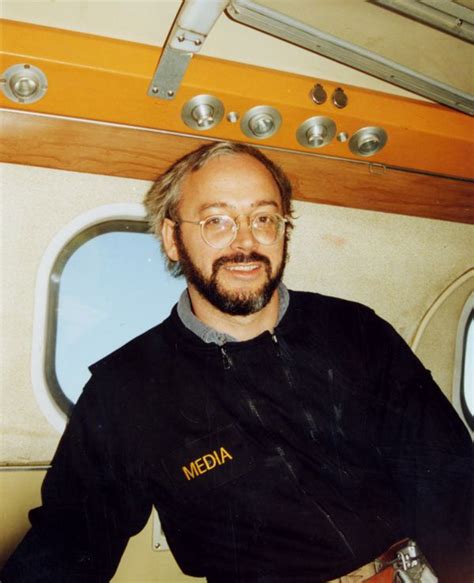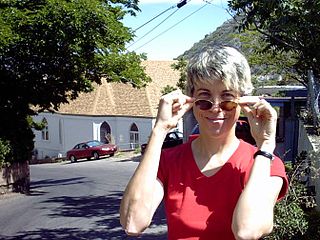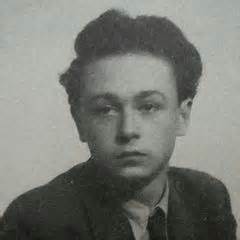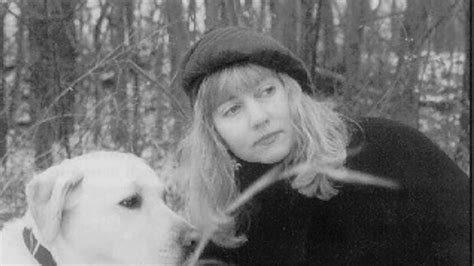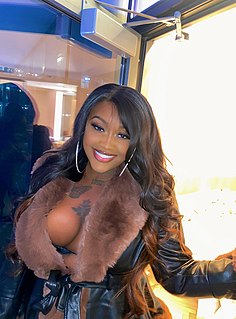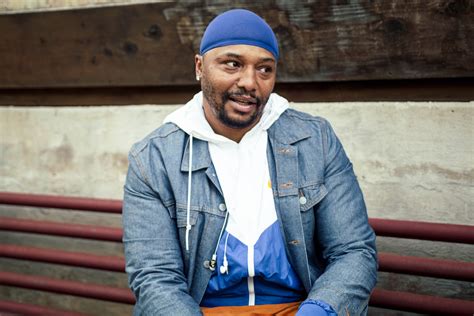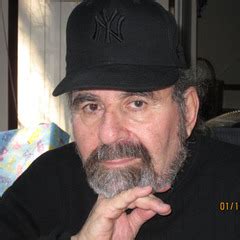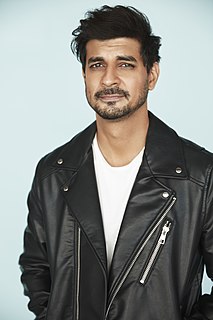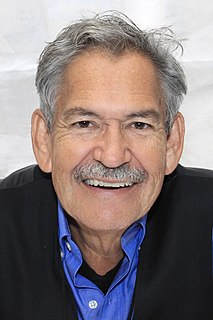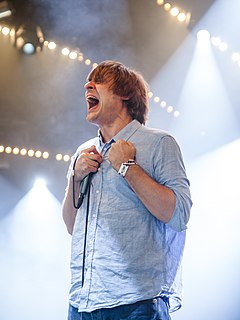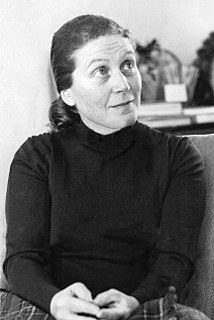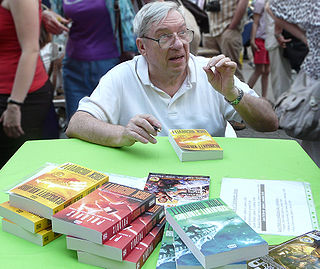Top 1200 Love Poetry Quotes & Sayings - Page 17
Explore popular Love Poetry quotes.
Last updated on November 19, 2024.
Everything is just make believe. They're just different versions of make believe. I love the period of this movie [The Finest Hours]. I love the '40s. I love the '50s. I love the style of the clothes. I love how the women looked. I love the dances. I love the music. I love the amber of the lights and the cars. I'm in love with all of it.
When modernist poetry, or what not so long ago passed for modernist poetry, can reach the stage where the following piece by Mr. Ezra Pound is seriously offered as a poem, there is some justification for the plain reader and orthodox critic who shrinks from anything that may be labelled 'modernist' either in terms of condemnation or approbation. Better he thinks, that ten authentic poets should be left for posterity to discover than one charlatan should be allowed to steal into the Temple of Fame.
I tend to like the way poets form communities. Writing can be lonely after all. Modern life can be lonely. Poets do seem to be more social than fiction writers. This could be because of poetry's roots in the oral tradition - poetry is read aloud and even performed. I'm just speculating, of course. At any rate, because poets form these groups, they learn from one another. That is one of the best things about being a poet.
What was love, really? Flowers, chocolate, and poetry? Or was it something else? Was it being able to finish someone's jokes? Was it having absolute faith that someone was there at your back? Was it knowing someone so well that they instantly understood why you did the things you did—and shared those same beliefs?
Mathematics is a form of poetry which transcends poetry in that it proclaims a truth; a form of reasoning which transcends reasoning in that it wants to bring about the truth it proclaims; a form of action, of ritual behavior, which does not find fulfilment in the act but must proclaim and elaborate a poetic form of truth.
... poetry is not a luxury. It is a vital necessity of our existence. It forms the quality of the light within which we predicate our hopes and dreams toward survival and change, first made into language, then into idea, then into more tangible action. Poetry is the way we help give name to the nameless so it can be thought. The farthest horizons of our hopes and fears are cobbled by our poems, carved from the rock experiences of our daily lives.
Eroticism is first and foremost a thirst for otherness. And the supernatural is the supreme otherness. This is perhaps the most noble aim of poetry, to attach ourselves to the world around us, to turn desire into love, to embrace, finally what always evades us, what is beyond, but what is always there – the unspoken, the spirit, the soul.
The question now becomes about defining your terms. What is literature? Unless we allow it to encompass the oral tradition from which it grew, which means taking it back to Homer and beyond, it demands the written word - poetry and prose. [Bob] Dylan is no slouch at the written word, both in its own right, and transcribed from his lyrics, which have often been acclaimed as poetry and may well stand up as such. But that is not his métier.
I love the best of all the traditions. My discipline is the take-no-prisoners language of good poetry, but a language that actually frees us from prejudice, no matter what religion or political persuasion they are. I try to create a river-like discourse. The river is not political, it's not on your side or against you. It's an invitation into the onward flow.
The author's conviction on this day of New Year is that music begins to atrophy when it departs too far from the dance; that poetry begins to atrophy when it gets too far from music; but this must not be taken as implying that all good music is dance music or all poetry lyric. Bach and Mozart are never too far from physical movement.
Opera contains music that reflects a culture of poetry and aesthetic. Spirituals are no different. What separates a spiritual for me is that I also happen to love Jesus. When I'm approaching these songs, I'm not approaching them like Mozart. I see my faith and the struggle of my ancestors and of a people seeking freedom beside what these songs are going to be in terms of their arrangement and delivery.
It occurs to me to wonder: do I believe in any god, or even positively not believe, as James does? I believe in systems and methods. I believe in the beauties of philosophy and poetry. I believe that the work we do and leave behind us is our afterlife; and I believe that history lies, but sometimes so well that I can't bring myself to resent it. I believe that truth is beauty, but not, I'm afraid, the reverse. It doesn't seem sufficient to sustain one in life's rigorous moments. Perhaps I shall embrace Islam. Its standards for poetry seem very high.
Poetry leads us to the unstructured sources of our beings, to the unknown, and returns us to our rational, structured selves refreshed. Having once experienced the mystery, plenitude, contradiction, and composure of a work of art, we afterward have a built-in resistance to the slogans and propaganda of oversimplification that have often contributed to the destruction of human life. Poetry is a verbal means to a nonverbal source. It is a motion to no-motion, to the still point of contemplation and deep realization.
In civilized places idleness, once the prerequisite for abstract thought, poetry, religion, philosophy, and falling in love, has become a character flaw. In America we've managed to stamp it out almost completely, and few people under forty can remember a single moment of it, even in earliest childhood. The phrase 'spare time' has vanished from the land.
We are bored in the city, there is no longer any Temple of the Sun. Between the legs of the women walking by, the dadaists imagined a monkey wrench and the surrealists a crystal cup. That's lost. We know how to read every promise in faces-the latest stage of morphology. The poetry of the billboards lasted twenty years. We are bored in the city, we really have to strain to still discover mysteries on the sidewalk billboards, the latest state of humor and poetry.
A lot of people think they can write poetry, and many do, because they can figure out how to line up the words or make certain sounds rhyme or just imitate the other poets they've read. But this boy, he's the real poet, because when he tries to put on paper what he's seen with his heart, he will believe deep down that there are no good words for it, no words can do it, and at that moment he will have begun to write poetry.
A magical portal opened inside my mind and conducted me into an astonishing world. [...] Before this moment I had divined but had never known with such positiveness that the world is extremely large and that suffering and toil are the companions and fellow warriors not only of Cretan, but of every man. [...] That by means of poetry all this suffering and effort could be transformed into dream; no matter how much of the ephemeral existed, poetry could immortalize it by turning it into song.
The man who invented Eskimo Pie made a million dollars, so one is told, but E.E. Cummings, whose verse has been appearing off andon for three years now, and whose experiments should not be more appalling to those interested in poetry than the experiment of surrounding ice-cream with a layer of chocolate was to those interested in soda fountains, has hardly made a dent in the doughy minds of our so-called poetry lovers.
We know how to think. We know how to laugh. We know we're going to die, which gives us a lot to think about, and we have a need for, what I would call, "the transcendent" or "the numinous" or even "the ecstatic" that comes out in love and music, poetry, and landscape. I wouldn't trust anyone who didn't respond to things of that sort.
Forget what you learned about poetry in school. (That it's complex, opaque, a problem to be solved in 1500 words by tomorrow.) Poetry is the last preserve of honest speech and the outspoken heart. It holds the cadence of common life. It has a passion for truth and justice and liberty; it is a buoy to people in ordinary trouble: to a friend whose life has gone skidding into the meridian, who has been struck by bad news, who is frying eggs and hash browns and has whiny child clinging to his pant leg.
In high school, in 1956, at the age of sixteen, we were not taught "creative writing." We were taught literature and grammar. So no one ever told me I couldn't write both prose and poetry, and I started out writing all the things I still write: poetry, prose fiction - which took me longer to get published - and non-fiction prose.
Particularly when I thought of myself as a Wallace Stevens acolyte, I wrote very difficult poetry and I was really guilty of not knowing what I was talking about. I was going for a kind of clever verbal effect. I was trying to sound linguistically or verbally interesting. I had a sense, I guess, from just reading a lot of poetry of how a poem would start and how it would end but really I didn't know what I was doing. It had very little connection to my life.
The Baathist state did two things extremely well. One was create information-gathering intelligence networks and a filing system. There's actually a lot of information on a lot of people and that is a major achievement of a police state. The second one is the promotion of literature and poetry, and the arts generally. So this is a state that's producing mass police archives - surveillance - and poetry. And in fact a lot of the archives are about what poets are writing or what they should be writing.
I've had the good fortune to read a lot of great American writers in translation, and my absolute beloved, for me one of the greatest writers ever, is Mark Twain. Yes, yes, yes. And Whitman, from whom the whole of 20th-century poetry sprung up. Whitman was the origin of things, someone with a completely different outlook. But I think that he's the father of the new wave in the world's poetry which to this very day is hitting the shore.
I began writing for kids because I wanted to effect a change in American society. I continue in that spirit. By the time we reach adulthood, we are closed and set in our attitudes. The chances of a poet reaching us are very slim. But I can open a child's imagination, develop his appetite for poetry, and more importantly, show him that poetry is a natural part of everyday life. We all need someone to point out that the emperor is wearing no clothes. That's the poet's job.
Falling in love is very real, but I used to shake my head when people talked about soul mates, poor deluded individuals grasping at some supernatural ideal not intended for mortals but sounded pretty in a poetry book. Then, we met, and everything changed, the cynic has become the converted, the sceptic, an ardent zealot.
I remember how as I kid I would love stories of every kind - whether they were narrated in school or what I read in books. Storytelling would always appeal to me, I would take part in poetry reciting, dramatics, choreography and debates. There was this fascination for performance, which finally culminated in a professional sphere.
I am still learning about love. I thought I understood it--not just mother love, but the love for one's parents, for one's husband, and for one's laotong. I've experienced the other types of love--pity love, respectful love and gratitude love. But looking at our secret fan with its messages written between Snow Flower and me over many years, I see that I didn't value the most important love--deep-heart love.
There's love and there's romantic love. The Greeks had different words for different kinds of love. And we just got "love." I don't know what you would call the other kinds - maybe brotherly love, Christian love, the love of Saint Francis, love of everyone and everything. Then there's romantic love, which, by and large, is a pain in the ass, a kind of trauma.
Nowhere have I found words more powerful than those in the Psalms. Their fervid poetry cleanses one, gives one strength, brings hope in moments of darkness. Makes one look critically into oneself, convict oneself, and wash one's heart clean with one's own tears. It is the ever-burning fire of love, of gratitude, humility, and truth.
Where philosophy ends, poetry must commence. There should not be a common point of view, a natural manner of thinking which standsin contrast to art and liberal education, or mere living; that is, one should not conceive of a realm of crudeness beyond the boundaries of education. Every conscious link of an organism should not perceive its limits without a feeling for its unity in relation to the whole. For example, philosophy should not only be contrasted to non-philosophy, but also to poetry.
Loving with human love, one may pass from love to hatred; but divine love cannot change. Nothing, not even death, can shatter it. It is all the very nature of the soul. Love is life. All, all that I understand, I understand only because of love. All is bound up in love alone. Love is God and dying means for me a particle of love, to go back to the universal and eternal source of love.
Most of us sleepwalk through our lives. We take all its glories, its wine, food, love, and friendship, its sunsets and its stars, its poetry and fireplaces and laughter, for granted. We forget that experience is not, or should not be, a casual encounter, but rather an embrace. Consequently, for too many of us, when we come to the end, we wonder where the years have gone. And we suspect we have not lived.
If the United States haven't grown poets, on any scale of grandeur, it is certain that they import, print, and read more poetry than any equal number of people elsewhere -- probably more than the rest of the world combined. Poetry (like a grand personality) is a growth of many generations -- many rare combinations. To have great poets, there must be great audiences too.
Of all the art forms, poetry is the most economical. It is the one which is the most secret, which requires the least physical labor, the least material, and the one which can be done between shifts, in the hospital pantry, on the subway, and on scraps of surplus paper. ... poetry has been the major voice of poor, working class, and Colored women. A room of one's own may be a necessity for writing prose, but so are reams of paper, a typewriter, and plenty of time.
I haven't written poetry in a long time but I read it and I miss it. It is so hard to write. So hard to finish, so hard to find the exact word to make it shine. In honor of my youth I will write a poem to finish this essay. It is spring in the Ozark Mountains. The yellow flowers are blooming and the birds wake me at dawn and last night five planets lined up by the moon in the western sky. If that doesn't inspire me to poetry what will?









